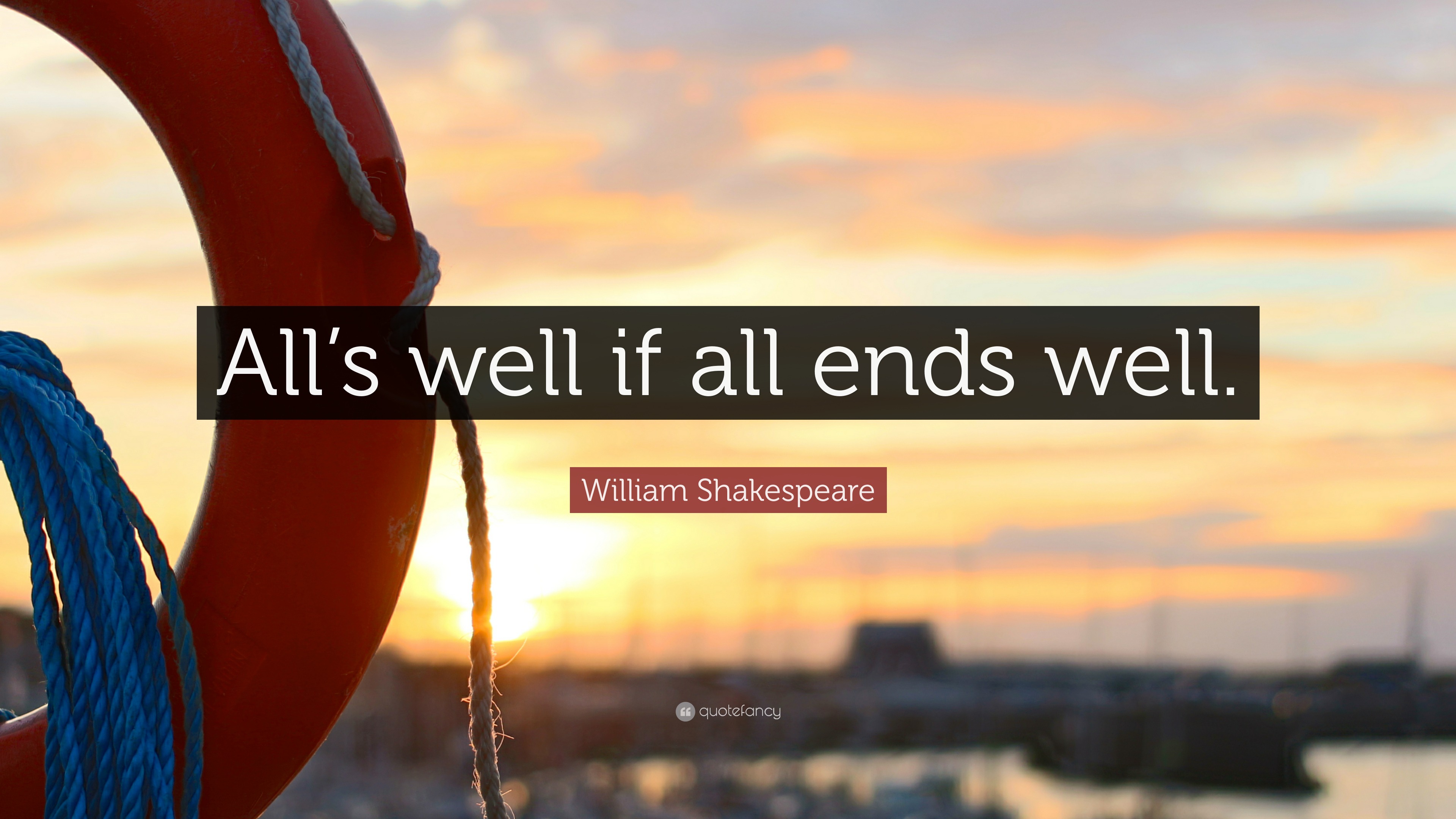
William Shakespeare Quote “All’s well if all ends well.”
William Shakespeare. All's Well That Ends Well is a play by William Shakespeare that was first published in 1623. (The year of its first performance is unknown.) The play is a comedy that follows the story of Helena, a young woman who after curing the King of France of a serious illness is granted permission to marry the man of her choosing.
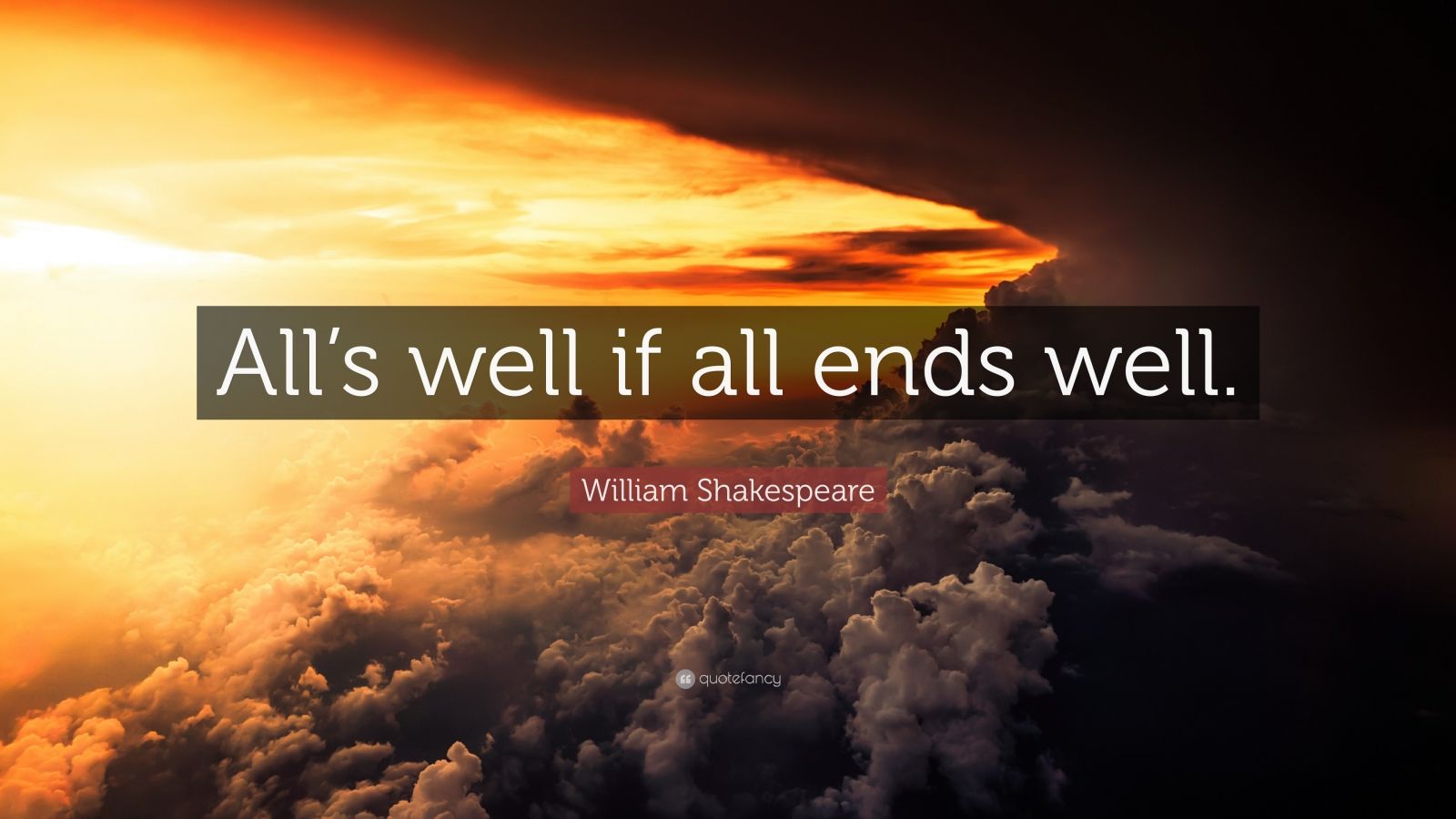
William Shakespeare Quote “All’s well if all ends well.” (12
All's Well That Ends Well Meaning. Definition: Despite problems during a process, the project can be considered a success. This phrase is used after a troubled start to a project or process, but, after a rocky start, things turned out okay. The happy ending compensates for the difficulties in arriving at the destination.
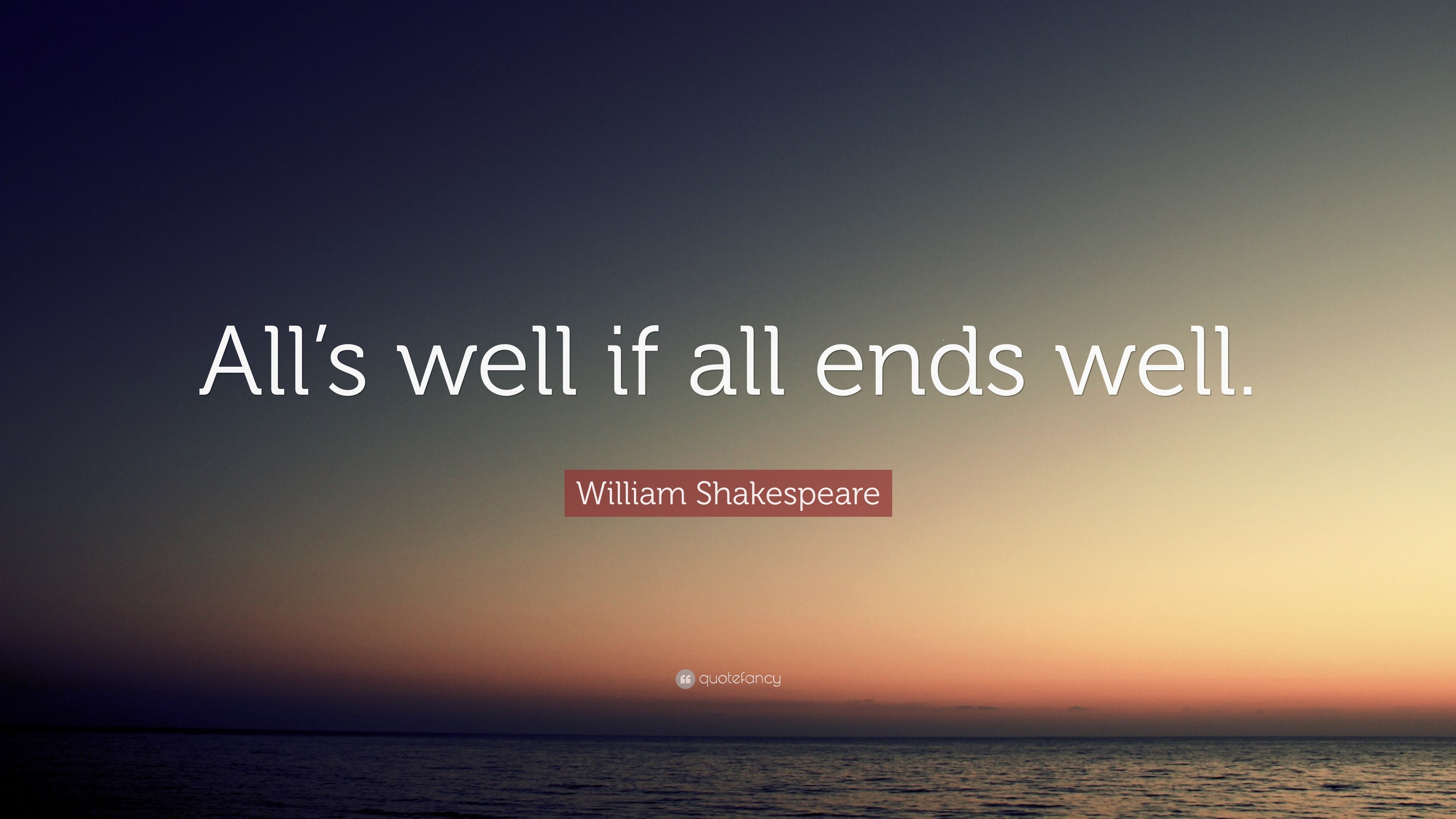
William Shakespeare Quote “All’s well if all ends well.”
The Shakescleare modern English translation of All's Well That Ends Well unlocks Shakespeare's play, including the quote from which it got its name: "All's well that ends well still: the fine's the crown; / Whate'er the course, the end is the renown.". This comedy follows Helena's pursuit of the reluctant Bertram.
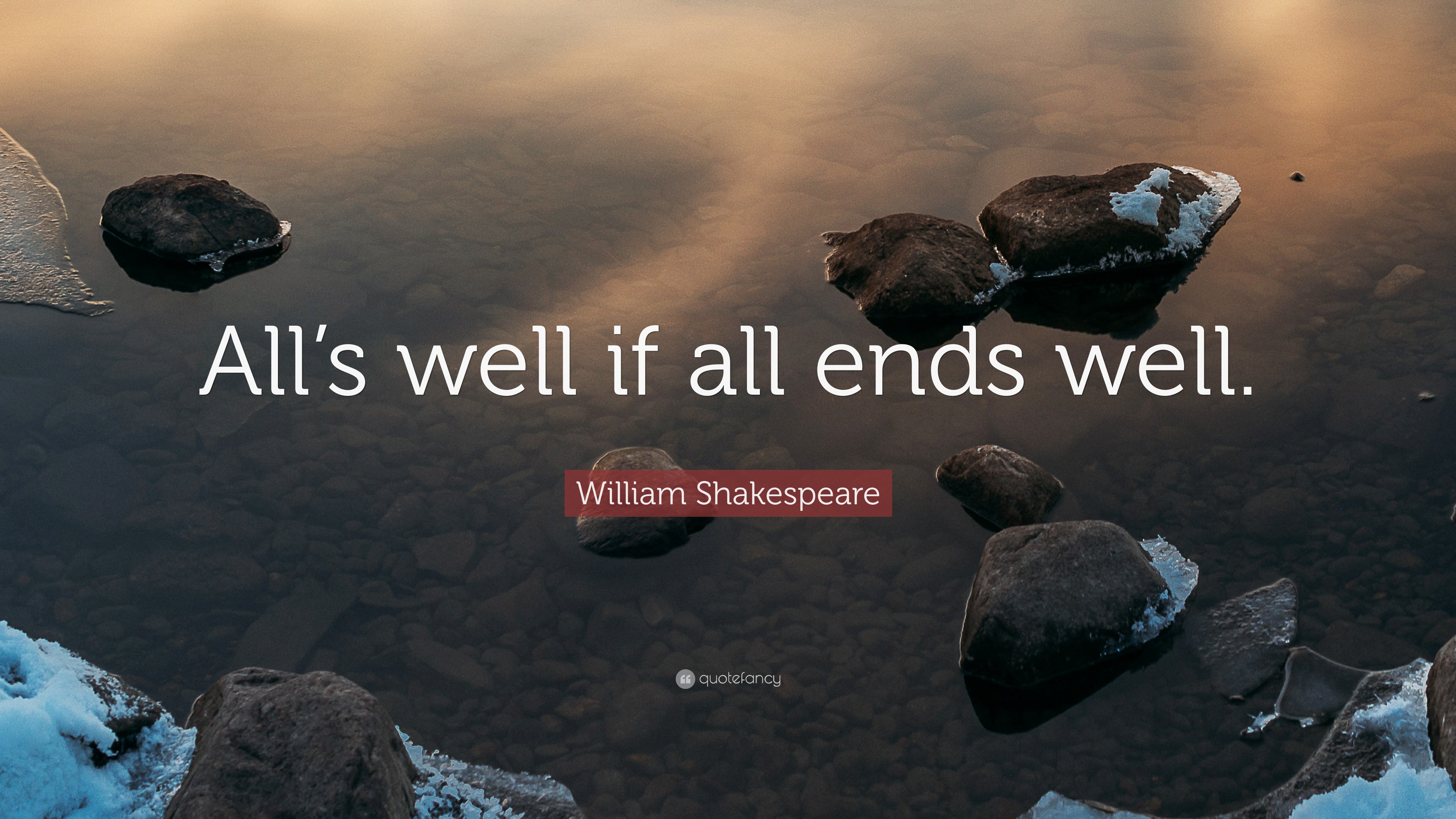
William Shakespeare Quote “All’s well if all ends well.”
Definition of all-s-well-that-ends-well in Oxford Advanced Learner's Dictionary. Meaning, pronunciation, picture, example sentences, grammar, usage notes, synonyms and more.

All's Well That Ends Well eBook by William Shakespeare, Dr. Barbara A
All's Well That Ends Well definition: . See examples of ALL'S WELL THAT ENDS WELL used in a sentence.
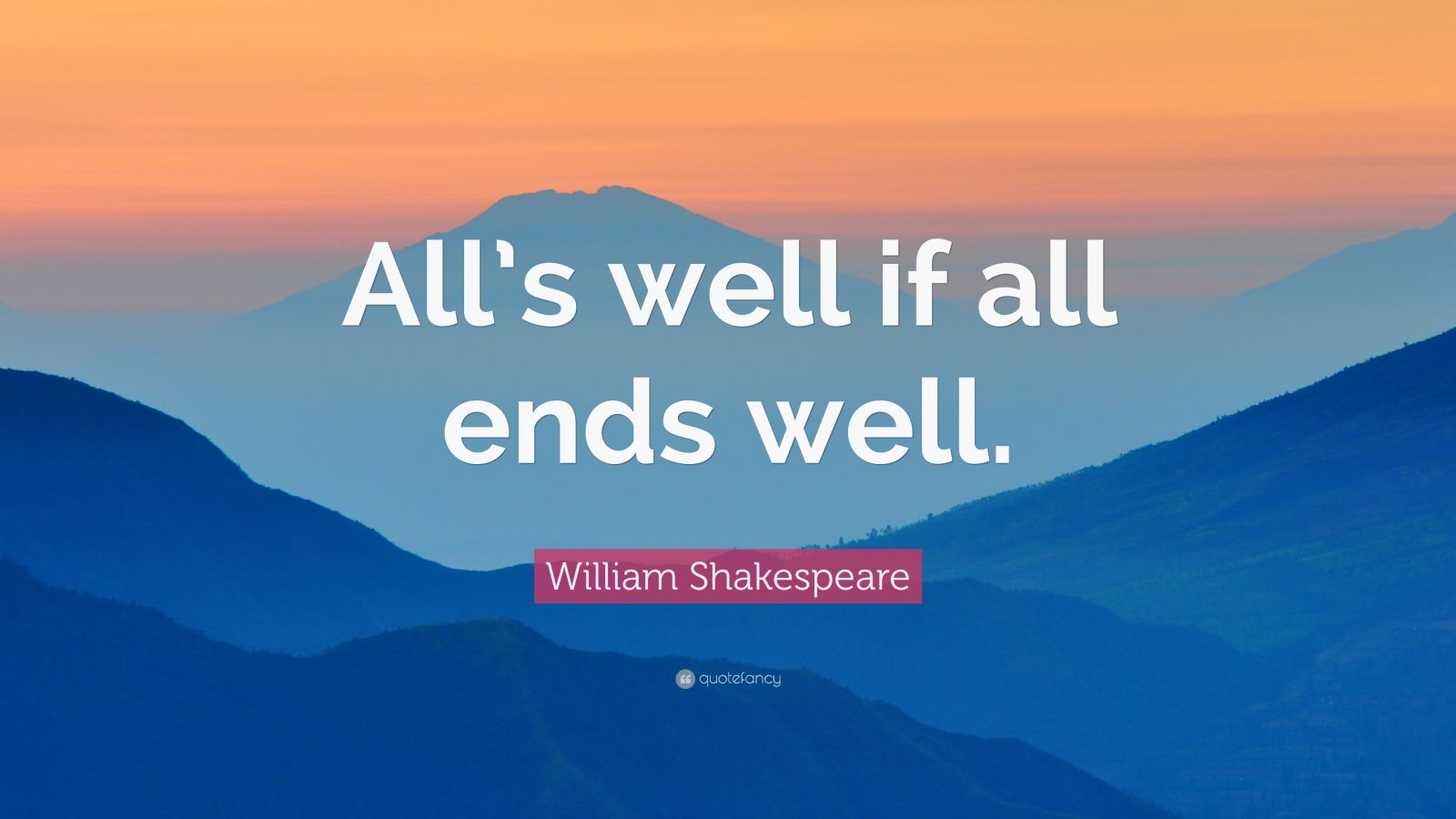
William Shakespeare Quote “All’s well if all ends well.” (12
The meaning of ALL'S WELL THAT ENDS WELL is —used to say that a person can forget about how unpleasant or difficult something was because everything ended in a good way. How to use all's well that ends well in a sentence.
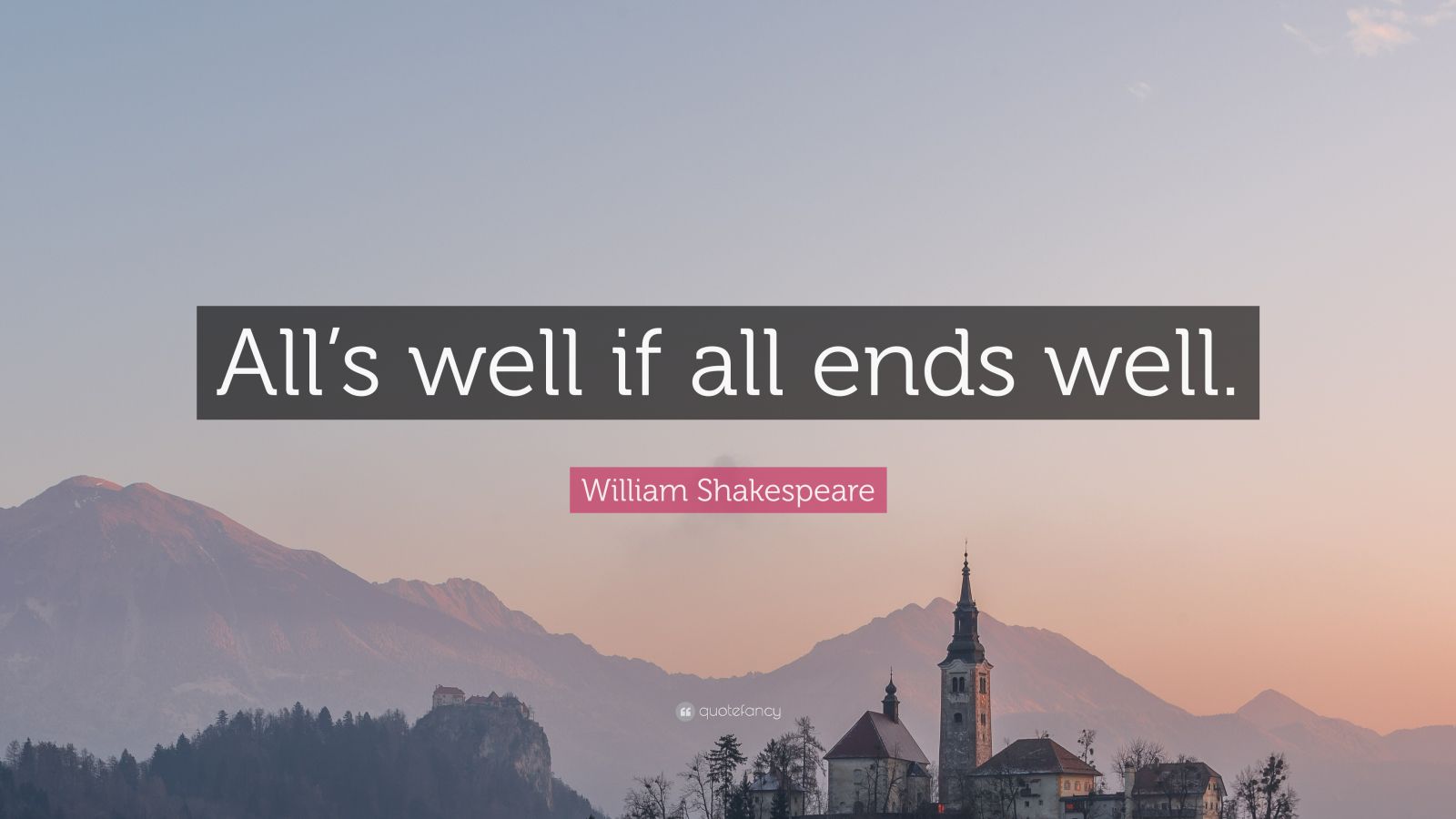
William Shakespeare Quote “All’s well if all ends well.” (12
The first page of All's Well, that Ends Well from the First Folio of Shakespeare's plays, published in 1623.. All's Well That Ends Well is a play by William Shakespeare, published in the First Folio in 1623, where it is listed among the comedies.There is a debate regarding the dating of the composition of the play, with possible dates ranging from 1598 to 1608.

In the Shakespeare Comedy, All's Well That Ends Well meaning, summary
From Longman Dictionary of Contemporary English All's Well that Ends Well ˌAll's ˌWell that ˈEnds ˌWell an expression which some people use to say that a difficult situation has ended with a good result.It is the title of a humorous play (written between 1601 and 1608) by William Shakespeare about the relationship between the two main characters, Helena and Bertram. all's well that ends.

Alls well that ends well william shakespeare
The proverb all's well that ends well is most well known because it is the title of a Shakespearean play published in 1623. In the play, the heroine, Helen, pursues a man of noble birth who has rejected her due to her lowly status. Despite being granted permission to marry him, she must complete the tasks he sets forth to prove herself worthy.

All's Well That Ends Well eBook by William Shakespeare Official
The proverb "all is well that ends well" or "all's well that ends well" is used when a person has successfully achieved his or her goal after going through pitfalls and overcoming the obstacles. In simple terms, though the journey is difficult in the end, everything turns out to be good as intended. In other words, it means that if a.

All's Well That Ends Well Meaning JordinminTucker
ALL'S WELL THAT ENDS WELL meaning: 1. if something has a good result or finally succeeds, previous problems are not important: 2. if…. Learn more.
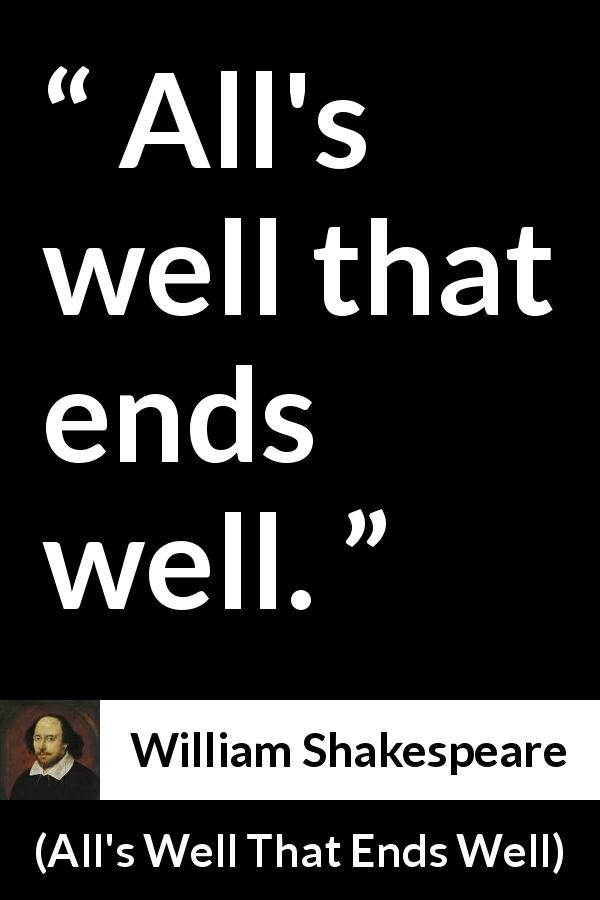
William Shakespeare “All's well that ends well.”
But even Heywood shouldn't get the credit for originating the phrase, although his is the first text to use the phrase with the precise wording 'all's well that ends well'. In 1381, in J. R. Lumby's Chronicon Henrici Knighton, we find the line, 'If the ende be wele, than is alle wele.'. And in R. Hill's Commonplace Book from.
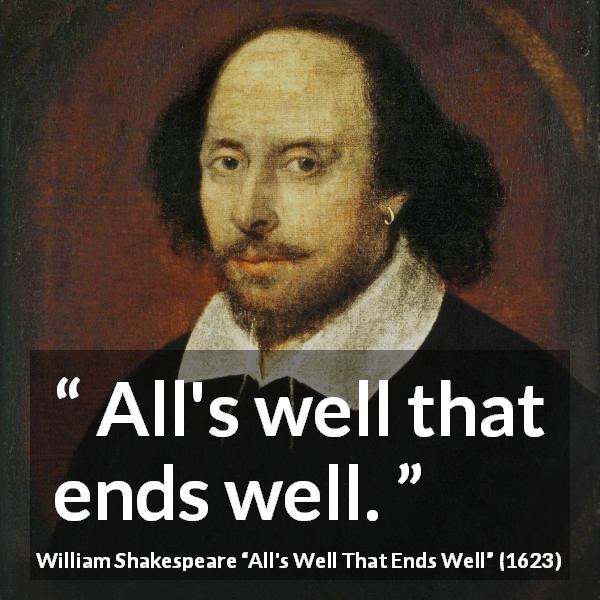
William Shakespeare “All's well that ends well.”
Given that Shakespeare wrote ' All's Well That Ends Well ' over 400 years ago it might be assumed that he coined the expression. In fact it was a proverb long before it was a play title. The Middle English Dialogue between Reason & Adversity, circa 1425 describes the saying as 'this olde prouerbe'.

William Shakespeare Quote “All’s well if all ends well.”
In All's Well That Ends Well, a woman is given in marriage to the man she longs for, but, because she is of lower rank, he refuses to accept the marriage. It becomes her challenge to win his acceptance. Helen, the daughter of a dead physician, secretly loves Bertram, the Count of Rosillion's son. When the count dies, Bertram becomes a ward.
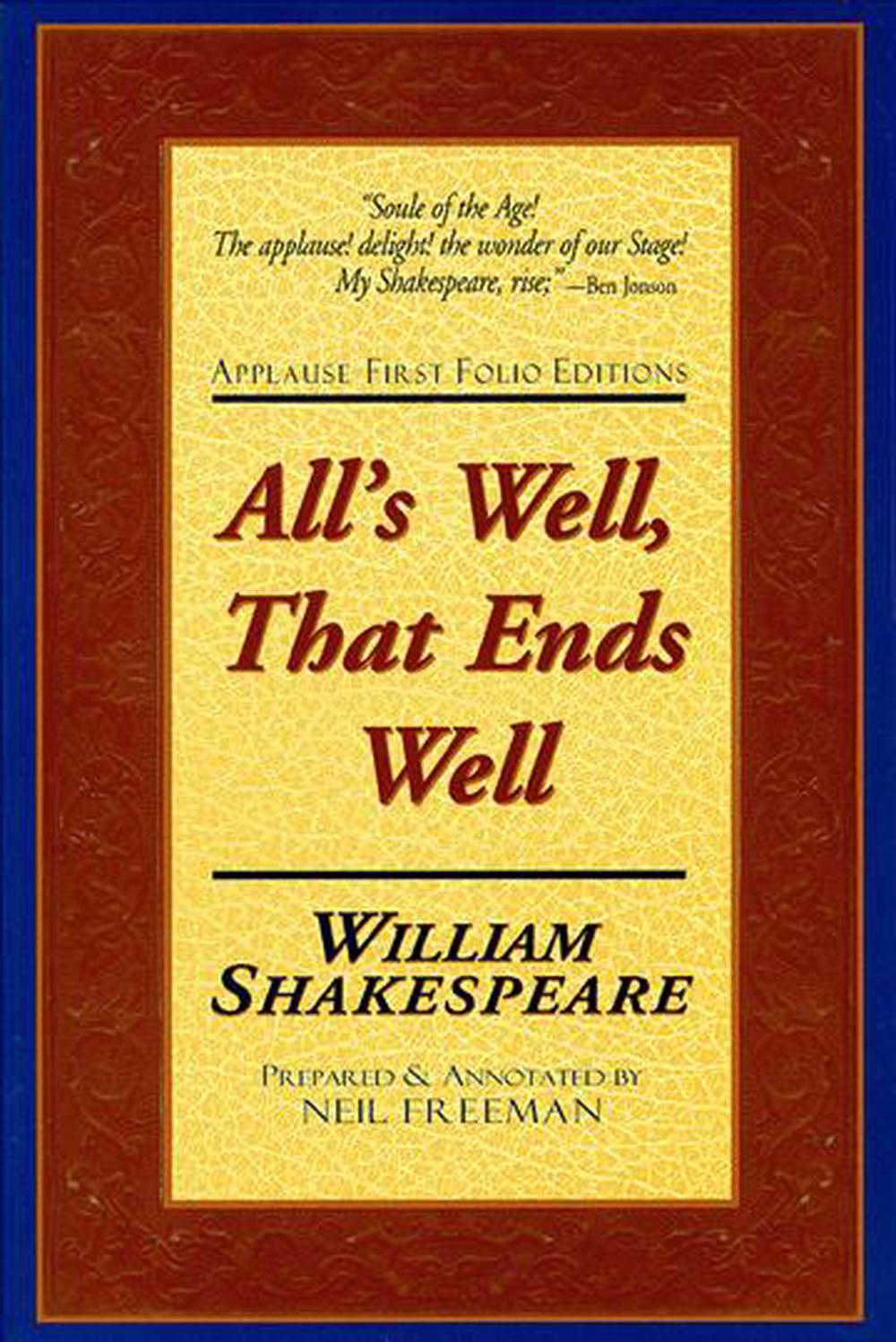
All's Well, That Ends Well Applause First Folio Editions by William
all's well that ends well A positive ending can overshadow any problems that may have preceded it. Although this phrase is the title of a Shakespeare play, it likely predates it. Hey, we're not fighting anymore, and that's all that matters. All's well that ends well. All's well that ends well—at least it didn't rain for my entire wedding day. The kids.
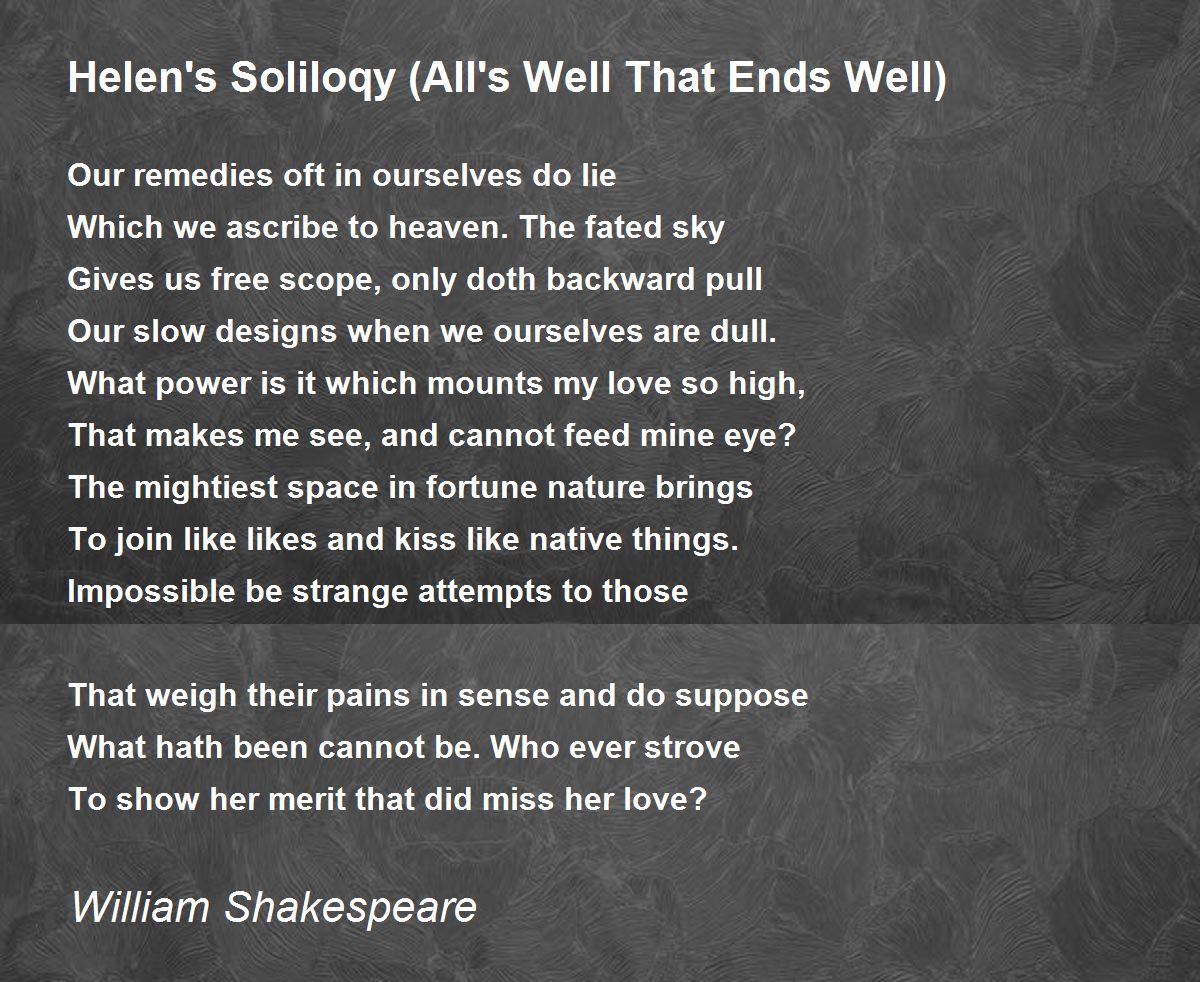
Helen's Soliloqy (All's Well That Ends Well) Helen's Soliloqy (All's
By Dr Oliver Tearle (Loughborough University) George Bernard Shaw held All's Well That Ends Well in high regard, having what Frank Kermode described as a 'perverse' admiration for it.Samuel Taylor Coleridge called Helena, the heroine of All's Well That Ends Well, Shakespeare's 'loveliest character' while the Victorian actress Ellen Terry called her 'despicable' and a.